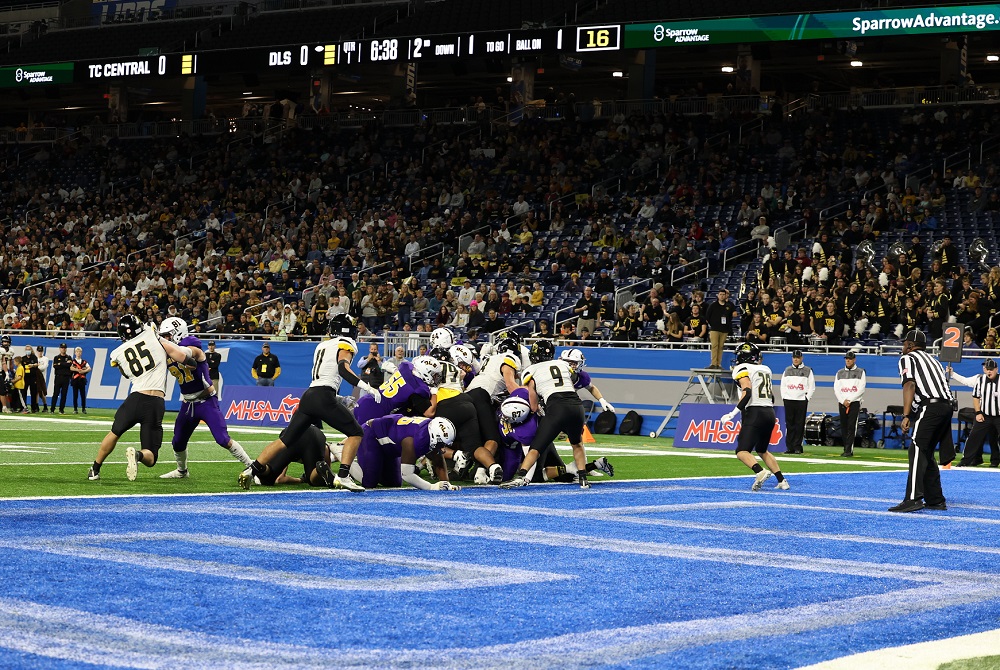
Be the Referee: YMTC - Sleeper Play
November 25, 2016
This week, MHSAA assistant director Mark Uyl explains why the "Sleeper Play" is an illegal one in high school football.
Be The Referee is a series of short messages designed to help educate people on the rules of different sports, to help them better understand the art of officiating, and to recruit officials.
Below is this week's segment – YMTC - Sleeper Play - Listen
Let’s finish up the football season with this You Make The Call.
It’s 4th down and five at the 30-yard line, and the offense begins to leave the field as the field goal unit comes on. One of those offensive players, however, doesn’t make it all the way to the bench. He stops a step short of the sideline, essentially hiding out there.
The ball is snapped, the holder stands and throws a perfect pass down the sideline to a wide-open player – that player who was hiding out at the sideline. Is this legal?
The answer is no. This is a foul for illegal participation. A team can never use a substitution or pretended substitution to deceive the defense.
Past editions
Nov. 17: Automatic 1st Downs - Listen
Nov. 10: Uncatchable Pass - Listen
Nov. 3: The Goal Line - Listen
Oct. 27: Help Us Retain Officials - Listen
Oct. 20: Point After Touchdown - Listen
Oct. 13: Untimed Down - Listen
Oct. 6: Soccer Penalty Kick Change - Listen
Sept. 29: Preparation for Officials - Listen
Sept 22: You Make the Call: Returning Kickoffs - Listen
Sept. 15: Concussions - Listen
Sept 8: Equipment Covering the Knees - Listen
Sept. 1: Play Clock Experiment - Listen
Aug. 25: Clipping in the Free Blocking Zone - Listen

Be The Referee: Play Clock
By
Sam Davis
MHSAA Director of Officials
August 30, 2022
Be The Referee is a series of short messages designed to help educate people on the rules of different sports, to help them better understand the art of officiating, and to recruit officials.
Below is this week's segment – Play Clock - Listen
There’s a new rule in football this year that provides the offense more time to draw up a play and prepare matchups when the defense commits a foul.
In the past, if the defense committed a foul, the play clock would be set to 25 seconds, potentially changing the approach by the offense entirely.
Under the change, when the defense or receiving team commits a foul, the play clock will start at 40 seconds, giving the offense an extra 15 seconds to prepare their scheme for the next play.
For all other administrative stoppages, including fouls against the offense or kicking team, the play clock will be set to 25 seconds when play resumes.
Previous Editions:
Aug. 23: Intentional Grounding Change - Listen

